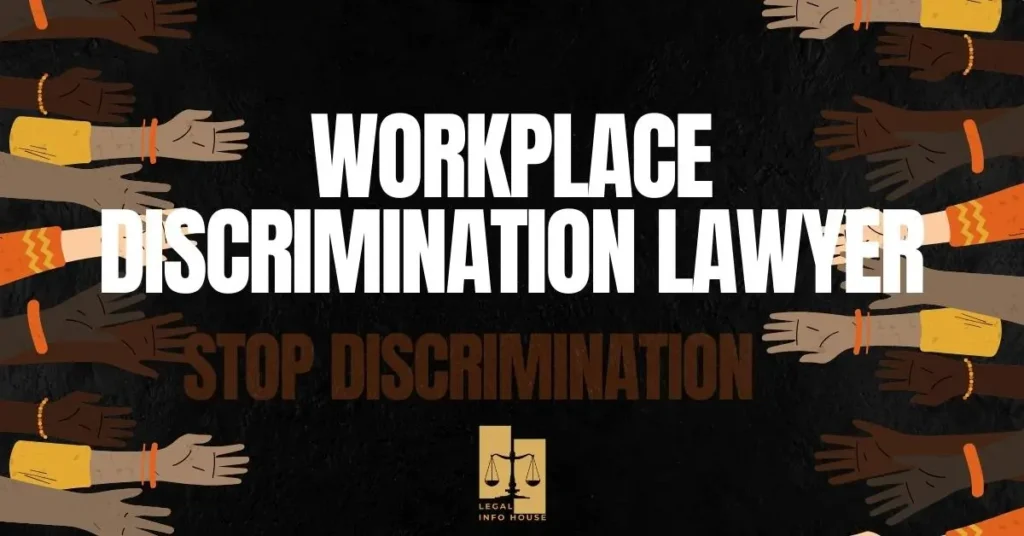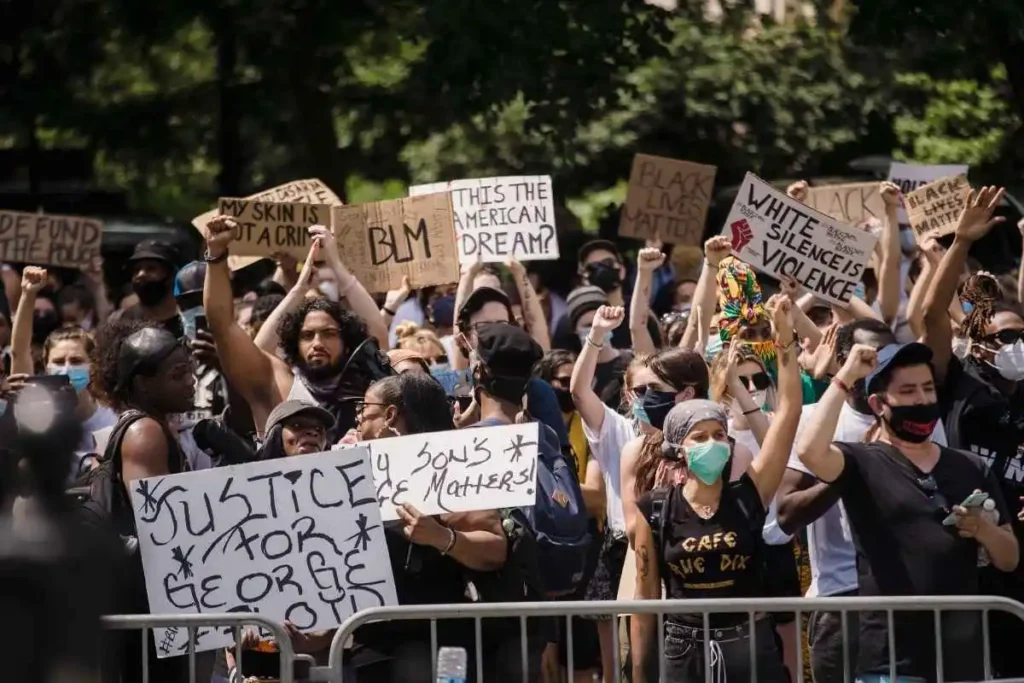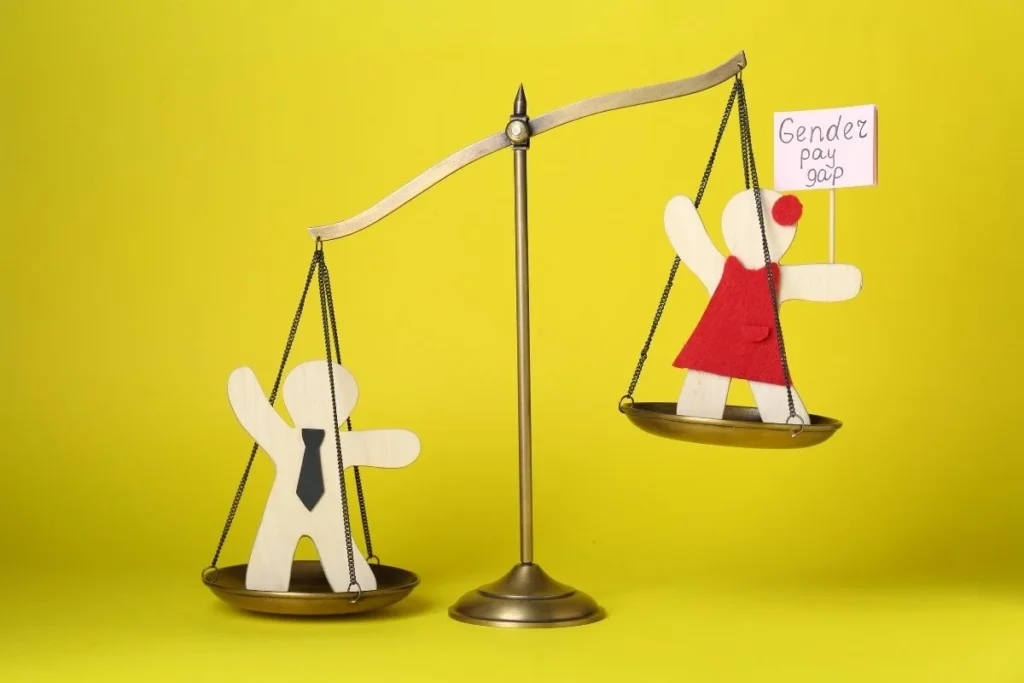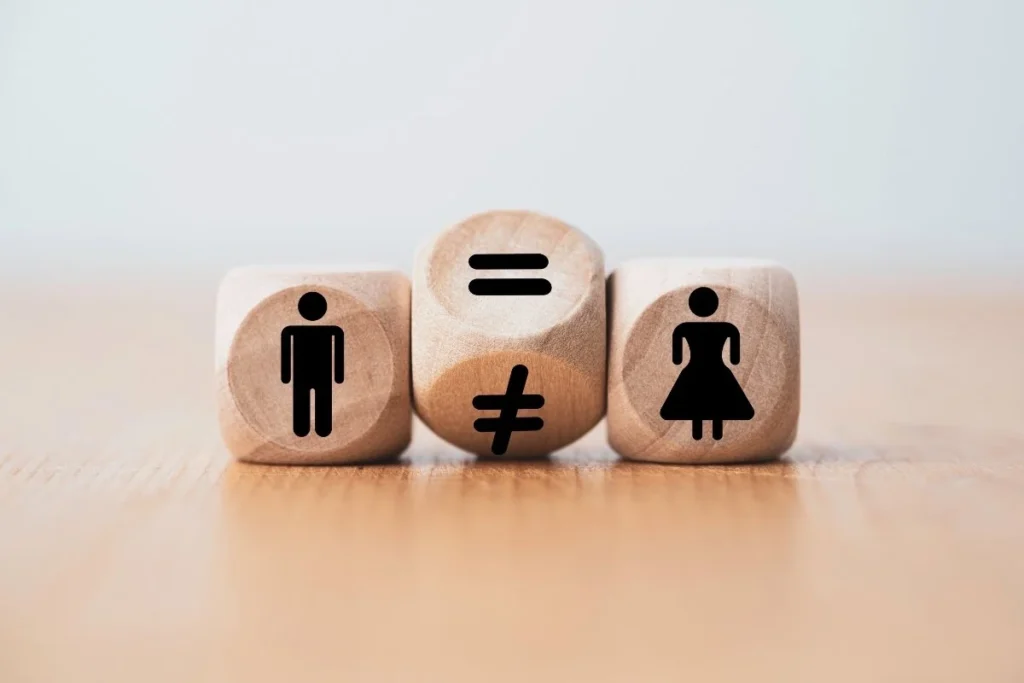
A Workplace Discrimination Lawyer handles cases where employees face discrimination at work. They specialize in protecting employees from discrimination based on race, gender, or age. These lawyers help workers understand their rights and pursue necessary legal action.
They ensure employers follow federal and state employment laws for protection. Workplace discrimination laws include the Civil Rights Act and the ADA. They may also include the Age Discrimination in Employment Act or other statutes.
These attorneys provide legal guidance to employees in need of justice and fairness.
What is Discrimination
Discrimination is one of the most pervasive problems facing many people all over the world. But, what is discrimination? Just as a simple definition, it refers to unfair treatment of individuals based on aspects such as race, gender, age, religion, disability and sexual orientation.
A concept that includes various forms of behavior and actions that promote injustice and inequality.
It is important to understand discrimination so as to identify patterns of injustice in society and work towards a fairer world. Therefore we will take an in depth look at various aspects of discrimination and how it affects our lives.

Historical Context of Discrimination
- Early Instances of Discrimination
Discrimination has been deeply entrenched in history. For instance, early societies used to discriminate against certain groups due to tribe or class or even gender matters. Understanding these early instances helps us see how discrimination has evolved and persisted over time.
- Major Historical Events Related to Discrimination
The Holocaust era for example was linked with the apartheid in South Africa and The Civil Rights Movement which are some of the major events in understanding about discrimination. These occurrences explain the dire consequences brought about by uncontrolled hatred and advocacy for equality.

Legal Aspects of Discrimination
- Anti-Discrimination Laws
Some countries have instituted anti-discrimination laws like US’ “Civil Rights Act”. These acts help give equal opportunities as well as defend citizens from being treated unfairly.
- Role of International Organizations
International organisations such as the United Nations are very vital when it comes to addressing global forms of discrimination. Through conventions as well as declarations they set standards on human rights thereby urging states to incorporate anti-discrimination policies.
Effects of Discrimination
- On Individuals
Psychologically, an individual would suffer from mental health disorders because he has been discriminated against; those include; depression , self-esteem problems among others which become barriers towards someone’s success in life. This is a lifetime emotional burden.
- On Society
Discrimination in society brings about disunity and inequality. It breaks up the social fabric of a nation thus preventing countries from tapping into talents offered by its citizens.
- On the Economy
Discrimination is a significant factor that makes huge difference in terms of economy. It results to a less diverse workforce, reduced productivity and high costs related to health and social services due to the negative effects it has on the sufferers of this kind of discrimination.
Psychological Impact of Discrimination
- Mental Health Issues
Experiences such as discrimination cause mental health problems including depression anxiety disorders PTSD among others which could lead to long term mental damage because one has been treated unfairly.
- Self-Esteem and Identity
An individual’s ego and identity can be highly impacted by discrimination. There are times when constant subjection to negativity or stereotypes may make someone feel they don’t deserve anything good for themselves.

Discrimination in the Workplace
- Hiring Practices
There are those qualified individuals who might not get job opportunities due to discriminatory hiring practices. Unfairness during recruitment process will lead to lack of diversity and inclusivity at workplace.
- Workplace Culture
A company that supports discrimination breeds toxicity. Consequently, there is decreased job satisfaction, high labor turnover rates as well as lack of teamwork amongst employees.
- Promotions and Pay
Discriminatory practices in promotions and remuneration create inequalities within workplaces. Lower wages are paid to those who belong to marginalised groups while chances for promotion become limited for others working hard in their jobs.
Educational Discrimination
- Access to Education
Certain communities or schools may restrict access so some people could not have quality education received for instance due biases during admission processes, lack of resources in given locations, or even specific policies being gender biassed leading one either girls or boys getting less privileges than other students do.
- Educational Institution Treatment
Peers and staff may discriminate against students from marginalized backgrounds in educational institutions. This can affect their overall experience and academic performance.
Racial Equality
- Advocacy and Activism
There is no doubt that advocacy work and activism are effective ways of dealing with discrimination. Many grassroots movements and advocacy groups tirelessly work to raise awareness and advocate for legal, governmental, and social reforms.
- Policies and Practices
Promoting equality and inclusion through policies as well as practices constitutes a way to fight against discrimination. Examples include workplace diversity initiatives for inclusive learning policies.
Media’s Contribution to Discrimination
- Proper Representation in Media
The media carries a great responsibility for moulding public opinion. Genuine representation of minority communities has the ability to tackle stereotypes thus reducing prejudice.
- How Public Perceives Media Influence
Media perpetuates discrimination but also challenges it. While the influence of negative media portrayal may reinforce prejudiced values, it can also be an instrument for promoting cultural empathy.
Movements Against Discrimination
- The Civil Rights Struggle
The American civil rights movement serves as an illustration of a triumphant anti-discrimination protest in history. It generated major legal changes that promoted fairness.
- Feminist Movement
Challenging gender bias as well as advocating for women’s liberation has been the primary focus of feminism throughout its existence. Today, it demands equal rights in all spheres of life.
Forms of Discrimination Now Emerging
- Emerging Issues
Technology-driven forms of discrimination keep surfacing among such platforms like online spaces.-in addressing contemporary dilemmas.
- Global Perspective
Different countries face diverse obstacles with regard to various forms of discrimination around the world. Global views enable us to understand various settings and approaches towards fighting against discrimination.

What to do if you have experienced Discrimination
Discrimination is such a serious problem which affects many people unfortunately. It is crucial therefore, that when you are discriminated against, you take the right steps to address it and protect yourself. So here’s what you can do:
1. Record Everything
The first step in fighting discrimination is recording all situations where it happens to you. Keep detailed records of dates, times, places and people involved. For future actions this documentation will be important evidence. A experienced workplace discrimination lawyer can help you to track the records.
2. Know Your Rights
To know your rights and protections against discrimination is vital thing to do. Go through the laws and policies relating them with regard to location whether international or local offices do not matter. This way you empower yourself on how well to advocate for your rights.
3. Seek Support
You don’t have to suffer alone when facing discrimination; talk about it with friends, family or support groups which offer emotional support. Hire a workplace discrimination lawyer who specializes in these cases or any organizations dealing with discrimination.
4. Make A Complaint
If you feel that someone has discriminated against you file a formal complaint with the relevant authority/ body accordingly this may include the government agency or human rights commission as well as the HR department of your employer. The procedures should be followed for filing complaints.
5. Explore Other Methods for Resolving Disputes
In some instances mediation or arbitration may provide quicker and less adversarial alternatives than proceeding via litigation.Have a conversation about these choices with a legal advisor so that they could advise on the best actions for one to take.
6.Litigation process
Should discussions prove ineffective towards resolving the issue then taking legal action may become necessary. Consider involving a workplace discrimination lawyer who specializes in such matters thereby representing one at court.
7.Take Care Of Yourself
Being faced by discriminatory acts can be emotionally draining.Therefore, pamper yourself by taking time to exercise, meditate and be around people you love.In doing so ,your well being in mind is your priority.
8. Stay Focused
Resolve an issue of discrimination may be complex and lengthy. Therefore, stay strong and true to yourself while seeking for justice.Remember that contributing towards an equitable society demands a lot of effort.
Laws Protecting against Workplace Discrimination
Discrimination at workplace is a very serious issue that affects the lives of workers as well as their chances for advancement. Thank goodness though, that there are several laws intended to shield people from various forms of discrimination. Below are some key pieces of legislation safeguarding employees’ rights:
1. Title VII Of The Civil Rights Act Of 1964
Title VII prohibits employment discrimination based on race, color, religion, sex or national origin including hiring; firings; promotions; and compensation.This applies to employers with fifteen or more employees including federal state and local governments.
2. Age Discrimination In Employment Act(ADEA)
ADEA outlaws employment discrimination against individuals who are aged forty years or older.It prohibits such kinds of bias during recruitment processes as well as promotion criteria/compensation packages offered to the employees among others.The law covers employers with twenty or more workers.
3.Americans With Disabilities Act (ADA)
The ADA prohibits discrimination against qualified individuals with disabilities in employment, public accommodations, transportation, and other areas. Employers must make reasonable accommodations for disabled employees so that they can perform their jobs effectively. The ADA applies to employers having fifteen or more employees.
4. Equal Pay Act of 1963
The Equal Pay Act demands that men and women working in the same company receive the same pay for doing substantially similar work. No employer shall discriminate against its female workforce in terms of remuneration based on sex. It covers all Fair Labor Standards Act employers regardless of size.
5. Pregnancy Discrimination Act (PDA)
This act made it clear that Title VII bars discrimination based on pregnancy, childbirth or related medical conditions. An employer must treat a woman employee normally as he would have treated any other individual with the same ability or inability who has applied for employment.
6. Genetic Information Nondiscrimination Act (GINA)
GINA forbids employers from discriminating against applicants or workers because of their genetic information. Employers should not use genetic information when making decisions concerning hiring, firing, promoting and compensating employees among others. It applies to employers with 15 or more employees.
Role of a Workplace Discrimination Lawyer
A workplace discrimination lawyer specializes in representing employees who have been mistreated due to unlawful discrimination. Their primary job is to advocate for the rights of workers by ensuring employers adhere to anti-discrimination laws. From providing legal advice to representing clients in court, these lawyers are crucial in fighting against workplace injustices.
1. Initial Consultation and Case Evaluation
The process begins with an initial consultation where the lawyer listens to the employee’s account of the discrimination they faced. During this stage, the lawyer evaluates the case’s merits, advises on the next steps, and explains the legal options available.
2.Investigating Workplace Discrimination Claims
Once a workplace discrimination lawyer takes on a case, they begin investigating the claim by gathering evidence. This includes interviewing witnesses, reviewing employment records, and analyzing any documentation related to the alleged discrimination, such as emails, performance reviews, or complaints.
3. Filing a Claim
If sufficient evidence supports the discrimination claim, the lawyer will file a formal complaint with either the Equal Employment Opportunity Commission (EEOC) or a state-level human rights commission. Filing deadlines are crucial in such cases, as missing them can mean losing the right to pursue the claim.
4. Representing Clients in Mediation or Arbitration
Not all discrimination cases go directly to court. Workplace discrimination lawyers often represent clients in mediation or arbitration, alternative dispute resolution methods aimed at settling cases without lengthy litigation. During these processes, the lawyer advocates for the client, using negotiation skills to reach a fair resolution.
5. Taking the Case to Court
If mediation or arbitration fails, the case may proceed to court. In this scenario, the lawyer prepares for trial, presents evidence, and argues the client’s case before a judge or jury. A workplace discrimination lawyer’s role is crucial during this phase, as they craft legal arguments, cross-examine witnesses, and work to secure a favorable verdict.
6. Legal Advice and Counseling
Throughout the process, workplace discrimination lawyers offer ongoing advice to clients, helping them understand their rights and obligations. They guide clients on the steps to take to protect their interests while navigating the legal complexities of their case.
7. Preparing Legal Documents
Workplace discrimination lawyers are also responsible for drafting legal documents such as complaints, motions, and court filings. Precision in legal documentation is vital, as errors can jeopardize the case.
8. Settling Workplace Discrimination Cases
In many cases, discrimination claims are resolved before trial through settlements. A skilled lawyer will negotiate on behalf of the employee to secure a fair settlement, ensuring the employee’s interests are protected.
9. Challenges Workplace Discrimination Lawyers Face
Handling workplace discrimination cases is not without its challenges. Lawyers often face uncooperative employers, difficult negotiations, and the burden of proving discrimination, which can be tricky when evidence is subtle or indirect.
How to Choose a Workplace Discrimination Lawyer
When selecting a workplace discrimination lawyer, it’s important to consider their experience, success rate, and familiarity with anti-discrimination laws. Clients should also look for lawyers with good communication skills and strong client testimonials.
What to Expect During a Workplace Discrimination Case
Workplace discrimination cases can take time, with various steps including filing complaints, mediation, and possibly a court trial. Throughout the process, clients should stay informed and prepared for different outcomes, whether it’s a settlement or a trial verdict.
Final Thoughts
Workplace discrimination lawyers play a vital role in ensuring that employees receive fair treatment under the law. From gathering evidence to representing clients in court, these legal professionals are essential in the fight against workplace injustice.
FAQ
How to file a racial discrimination complaint.
To file a racial discrimination complaint, document the incidents, gather evidence, and submit a claim to the Equal Employment Opportunity Commission (EEOC) or your local agency.
How does an EEOC complaint hurt an employer
An EEOC complaint can hurt an employer by damaging their reputation, leading to legal costs, possible fines, and settlements. It may also prompt an investigation, resulting in policy changes or penalties.
How long do you have to file a lawsuit against your employer
You typically have 180 to 300 days to file a complaint with the EEOC, depending on the state and the type of claim. After receiving a “Right to Sue” letter from the EEOC, you usually have 90 days to file a lawsuit.
How to file a discrimination complaint against a business
To file a discrimination complaint against a business, gather evidence, document incidents, and file a complaint with the Equal Employment Opportunity Commission (EEOC) or a local agency. Deadlines vary, so act quickly.
How can an organisation prevent workplace discrimination?
Introduce anti-discrimination policies; train personnel; encourage diversity and inclusion; establish clear reporting channels.
